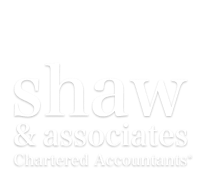Why You Need to Separate Personal and Business Finances
June 6th, 2024
Posted in: Tips & Insights

As a small business owner in Canada, you're juggling multiple responsibilities every day. Amidst this hustle, it's easy to overlook the importance of keeping your personal and business finances separate. However, doing so can significantly impact your business's success and financial well-being.
As noted by Forbes “Entrepreneurs face unique financial and legal challenges. They need greater access to loans and cash flow to propel business growth and must ensure they are as legally protected as possible. Not separating these bank accounts can lead to financial and legal risks.”
Here’s a quick overview video of why you need to separate personal and business finances.
1. Clarity and Transparency
Clarity and transparency of business and personal finances matters can be critical for keeping things clear on a number of fronts.
Accurate Financial Picture: By maintaining separate accounts, you'll have a clear view of your business's financial health. You'll know exactly how much money is flowing in and out without any confusion over whether it’s business money or personal money.
Tax Reporting Made Easy: The Canada Revenue Agency (CRA) requires accurate tax reporting. Separate accounts simplify this process. Imagine trying to untangle personal expenses from business transactions during tax season once the transactions are from many months ago—it's a headache you can avoid if you keep things separate throughout the year.
2. Legal and Liability Considerations
Separation isn't just about convenience; it has legal implications:
Legal Protection: Operating as a sole proprietorship or partnership means your personal assets are at risk if your business faces legal trouble. By keeping finances separate, you are working to protect your personal savings, home, and other assets.
Professionalism: Clients and suppliers take your business more seriously when they see a dedicated business account. It signals professionalism and commitment.
3. Practical Steps to Separate Finances
Here's how to get started:
Open A Business Bank Account: Visit your local bank and open a business-specific account. Keep personal transactions out of it.
Use Separate Credit Cards: Having a business credit card ensures clear tracking of business expenses. Plus, it builds your business credit history.
Pay Yourself A Salary: Treat yourself as an employee. Pay yourself a regular salary from the business account. This helps maintain boundaries.
4. Record Keeping and Audits
Detailed records are your best friend; CRA’s rule-of-thumb is if you can’t prove it, it didn’t happen.
Audit-proofing: In case of a CRA audit, having separate records makes your life easier. You won't scramble to prove which expenses were business-related.
Expense tracking: Log every business expense—whether it's office supplies, marketing costs, or travel. It's essential for accurate financial statements.
5. Seek Professional Guidance
Consult an accountant or bookkeeper. Shaw & Associates would love to guide you through tax obligations, deductions, and financial strategies. Our expertise ensures compliance, maximizes your tax benefits, and minimizes taxes payable.
Remember, separating personal and business finances isn't just a best practice—it's a smart move that sets your business up for success. Take the necessary steps today, and watch your financial clarity soar!
Contact Shaw & Associates Chartered Accountants for accounting help you can count on. One complimentary meeting with us will put you and your business on a more profitable and positive path.

